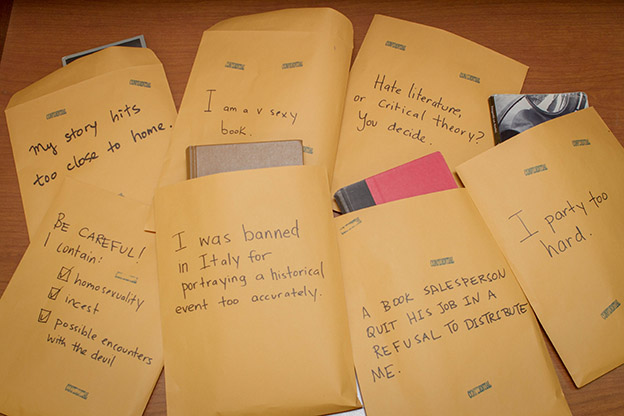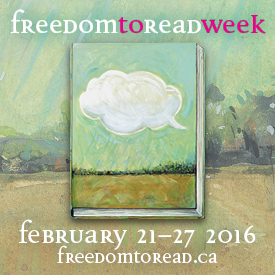No, you can’t read that book!

What if you were told you couldn’t read a book because of its so-called offensive language or graphic content? Chances are you’d want to read it even more, if only to find out why you were told not to read it in the first place.
Freedom to Read Week is a nation-wide commemoration of the thousands of books that have been banned, challenged, or censored for any number of reasons, including sexuality, coarse language, racism, or religious objections.

From February 21-27, McMaster University Library is joining public libraries, bookstores and schools across the country to create awareness around the issue of censorship and highlight the importance of intellectual freedom.
Throughout the week, faculty, staff and students are invited to the lobby of Mills Library to explore a display featuring a wide and surprising array of books that have at one time been banned or challenged.
Faculty, staff and students can also participate in Freedom to Read Week via Twitter, using the hashtag #MacFTR16, where everyday throughout the week, Library staff will tweet out the reason a book was banned and invite people to give their own reasons why it should be read.
Although banning books is far from a common practice in Canada, there continue to be those who seek to remove books they deem offensive from libraries and schools.
Challenged and banned books have ranged from literary classics such as James Joyce’s Ulysses to popular children’s books such as the Harry Potter series by J. K. Rowling. As recently as 2014, a patron of the Toronto Public Library challenged Dr. Seuss’s Hop on Pop: The Simplest Seuss for Youngest due to the concern that it “encourages children to use violence against their fathers.”
Watch videos featuring a number of famously banned literary classics, including the following video that asks the question, “What if we never got to meet Atticus Finch?”

